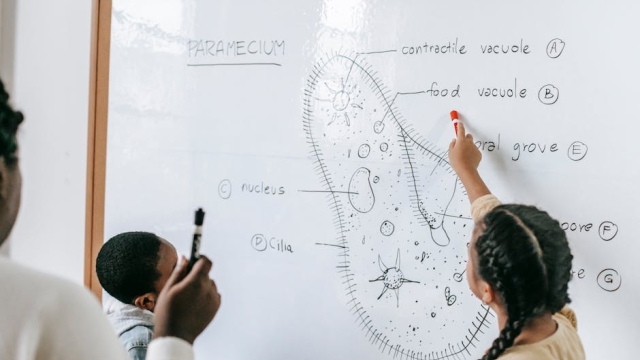
Achieving educational success is a goal shared by students, educators, and parents alike. It encompasses not only the attainment of academic knowledge but also the development of skills and habits that foster lifelong learning. In this article, we will explore effective educational success strategies that can empower learners to reach their full potential. By focusing on effective study techniques, time management for students, and creating a supportive learning environment, individuals can cultivate a framework for academic achievement.
Effective Study Techniques
Effective study techniques are foundational to educational success. These methods help students retain information, understand complex concepts, and prepare for assessments. One popular approach is the use of active learning strategies. Instead of passively reading or highlighting texts, students can engage with the material through summarization, questioning, and teaching others.
Actionable Tips:
- Use the Feynman Technique: This involves explaining a concept in simple terms as if teaching it to someone else. This technique helps identify gaps in understanding.
- Employ spaced repetition: Break study sessions into shorter, spaced intervals to enhance retention and prevent cramming.
- Practice retrieval: Regularly test yourself on the material, as recalling information strengthens memory.
Real-life Example:
A high school student struggling with biology improved her grades by forming a study group. Each week, they would take turns teaching a specific topic. This collaborative learning experience not only deepened their understanding but also made studying more enjoyable.
Potential Challenges:
Many students may find it difficult to stay focused during study sessions. Distractions such as smartphones or social media can hinder effective learning. To combat this, students should create a dedicated study space that minimizes interruptions and promotes concentration.
Time Management for Students
Time management is a crucial skill that directly impacts educational success. Students often juggle multiple responsibilities, and effective time management allows them to prioritize tasks and allocate their time wisely. By developing a structured approach to their schedules, students can reduce stress and improve their academic performance.
Actionable Tips:
- Create a daily or weekly planner: Outline tasks, assignments, and commitments to visualize what needs to be accomplished.
- Use the Pomodoro Technique: Work in focused intervals of 25 minutes followed by a 5-minute break. This method helps maintain high levels of concentration.
- Set specific goals: Break larger tasks into smaller, manageable objectives to track progress and stay motivated.
Real-life Example:
A college student with a part-time job and a full course load found success by setting a schedule that included study blocks, work hours, and leisure time. This balance allowed him to manage his responsibilities effectively while still enjoying his college experience.
Potential Challenges:
One common obstacle is procrastination, which can derail even the best-laid plans. To overcome this, students should identify their personal triggers and develop strategies to stay accountable, such as studying with a friend or setting deadlines for themselves.
Creating a Supportive Learning Environment
A supportive learning environment plays a critical role in achieving educational success. This environment encompasses not only physical space but also emotional and social support. When students feel safe and encouraged, they are more likely to engage actively in their learning process.
Actionable Tips:
- Establish a designated study area: Create a clutter-free, comfortable space with adequate lighting and resources for studying.
- Encourage open communication: Foster relationships with teachers, peers, and family members to create a network of support.
- Participate in collaborative learning: Join study groups or extracurricular activities that promote teamwork and connection with others.
Real-life Example:
A student who felt isolated in a large school found community by joining a science club. This involvement not only enhanced her academic skills but also provided her with friends who shared similar interests.
Potential Challenges:
Some students may face challenges in their home environment that hinder their learning. In such cases, seeking external support from mentors or tutors can provide the necessary guidance and encouragement to thrive academically.
Conclusion
In summary, implementing effective educational success strategies can significantly enhance a student’s ability to achieve their academic goals. By adopting effective study techniques, mastering time management, and creating a supportive learning environment, individuals can foster resilience and motivation in their educational journeys. Encouraging students to explore these strategies will empower them to take charge of their learning and set the stage for future success. For additional resources and personalized support, consider exploring options available at Burke Tutoring.
